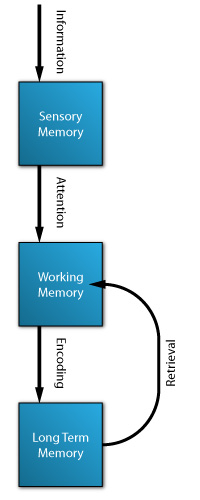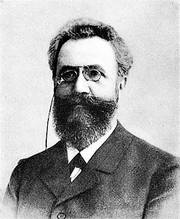Your learning success is scientifically guaranteed!
Your learning success is scientifically guaranteed!
Sometimes we ask ourselves why we are not able to remember certain facts or information that we once knew very well. Unfortunately we are all fighting a constant battle against forgetting. The problem is that our brains get flooded with information provided by our senses. To cope with this flood of information, our brains have developed sophisticated mechanisms for discarding information if it is no longer deemed important, and storing information if it is deemed important. Information is learned only once it has been stored in the long term memory and can be retrieved at will.
How does our Memory work?

How does MemoryLifter work?
Sensory Memory is a descriptive phrase referring to the split-second retention of impressions of all sensory stimuli. All information that enters our brain is briefly recorded in the sensory memory.
Short Term Memory is the term used to refer to the ability to access information in mind for a brief time. If we focus our attention on information stored in the sensory memory, it becomes part of our short term memory. The duration of short term memory is believed to be on the order of seconds. Information can be kept circulating in the short term memory by rehearsing it. Once the repetition is stopped you may immediately lose the ability to recall the information.
Long Term Memory refers to a system in the brain that can store and retrieve vast amounts of information on a relatively enduring basis. This happens through encoding techniques such as repetition and rehearsal. There is no finite limit to the long term memory. People can and do learn new facts and skills throughout their lives.
Spaced Repetition - a successful learning technique
Learning is matter of personal style and preference. However there are learning techniques, whose efficiency have been scientifically proven. Many of these proven techniques include association and repetition. The concept of "spaced repetition" is that each time the learner demonstrates knowledge of a certain piece of information, this piece of information is repeated less often. In other words, well-remembered information is reviewed less often than information that is not well-known to the learner. Hermann Ebbinghaus was a European psychologist who brought learning and memory into the laboratory. He found that without repetition, we tend to forget about 75% of what we learn after only 48 hours. Ebbinghaus' work clearly showed the value of trying to encode information into the long term memory through repetition and rehearsal. The ability to lastingly recall information improves significantly with repetition.
Hermann Ebbinghaus was a European psychologist who brought learning and memory into the laboratory. He found that without repetition, we tend to forget about 75% of what we learn after only 48 hours. Ebbinghaus' work clearly showed the value of trying to encode information into the long term memory through repetition and rehearsal. The ability to lastingly recall information improves significantly with repetition.
About 65 years later, another European psychologist named Sebastian Leitner devised a "cardbox" methodology for learning with flashcards, with simple, but extremely effective rules of operation. Most people are familiar with flashcards in their simplest form. They are papercards, that hold a question on the front and the corresponding answer on the reverse side.
Leitner's cardbox organizes these flashcards into multiple sections called boxes. These boxes become bigger as they increase in number. Starting with an unlimited number of cards in a card pool, a small number of cards are picked at random and are moved to the first box. Now they are presented for learning, one at a time. If the card is known, then it is put into the second box. If the card is not known, then it remains in the first box, but moves to the back of the deck so that some time passes before it is asked again. In a similar fashion, flashcards that are promoted, are also always put in the back of the next box. A higher level box is only quizzed again, if it is filled completely. Because ascending boxes increase in size, this creates increasing amounts of time between repetitions. If at any time a flashcard in one of the higher boxes is not known, it returns to the back of the deck in the first box.
